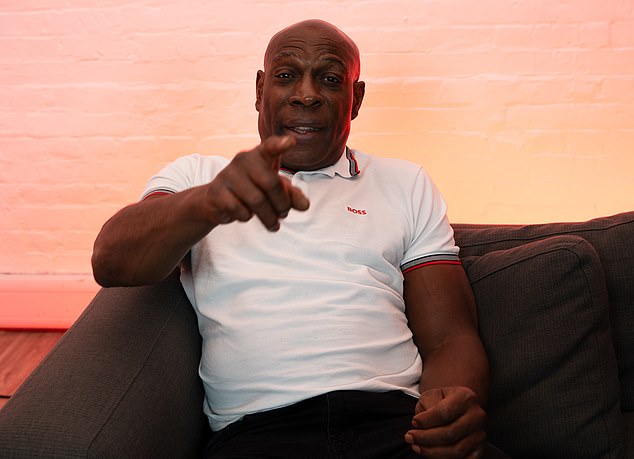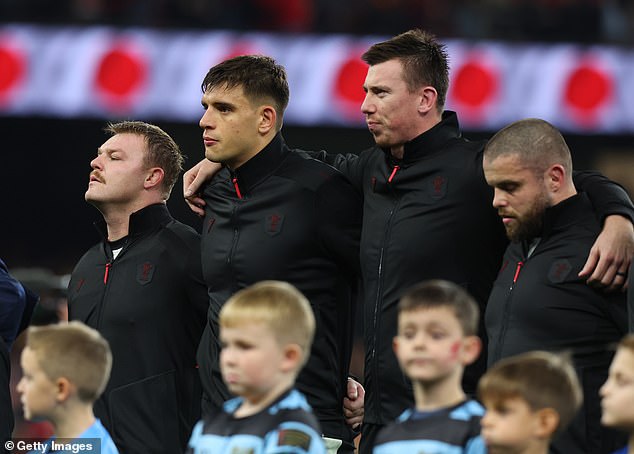
Frank Bruno Exposes Mental Health Hell and Accuses Tyson, Holyfield of Doping
Frank Bruno: Triumph Over Darkness
(Word count: ~650)
Frank Bruno’s laughter echoes before he enters the room—a booming, joyful sound belying the struggles he’s endured. Now 64, the former heavyweight champion retains the vigor of a man half his age. “What’s up, boss man!” he greets the crew filming his new show, ClubHouse Boxing, near London Bridge. Despite retiring decades ago, his presence remains larger than life, his hands still bear the marks of a fighter, yet his handshake is gentle.
[Image 1: Bruno in the studio, caption: “Bruno at 64: Still radiating the charisma of his prime.”]
The Darkest Fight
Bruno’s toughest battle wasn’t in the ring. In 2003, after retiring and facing personal crises—a collapsed marriage, estrangement from his children, and the suicide of his trainer—he was sectioned under the Mental Health Act. Recalling the night police and ambulances arrived at his home, he says, “It was the worst day of my life. Helicopters filmed everything. Humiliating.”
[Image 2: Bruno during sectioning, caption: “Bruno recalls the trauma of being sectioned: ‘They treated me like a slave.’”]
He spent three weeks at Goodmayes Hospital in Essex, describing it as “hell.” “They’d provoke patients,” he claims. “No TV, supervision even for the toilet.” The hospital responded to Daily Mail Sport, citing improvements since his stay. Bruno, however, remains critical: “They should all be sacked.” Discharged but overmedicated, he felt like a “zombie” until reclaiming control: “I fought to stop the drugs. My mind was mine again.”
Rebuilding Through Routine
His salvation? Returning to discipline. Bruno trains twice daily—weights, sprinting, pads—and avoids alcohol after a childhood incident stealing beer left him ill. “Exercise is my therapy,” he says, his physique still formidable. Though open about mental health struggles, he’s wary of the boxing world’s abandonment: “The Board never called. They don’t care about fighters.”
[Image 3: Bruno with daughter Rachel, caption: “Family bonds: Bruno and daughter Rachel, after rebuilding relationships post-sectioning.”]
Scars and Rivalries
Old wounds linger. Lennox Lewis’s 1993 “Uncle Tom” slur still stings. “He’s a snake,” Bruno says coldly. Of American rivals like Tyson and Holyfield, he suspects PED use: “Their strength wasn’t natural.” Yet he admires Tyson Fury’s resilience amid bipolar struggles: “He’s unfairly judged. But he’s good for boxing.”
[Image 4: Bruno vs. Lennox Lewis, caption: “A fraught rivalry: Bruno and Lewis in 1993.”]
Legacy of Laughter
Today, Bruno’s focus is joy. He jokes, devours chocolate cake, and champions mental health awareness. His career pinnacle—the 1995 world title win—is bittersweet, overshadowed by Lewis’s taunt. Yet, he’s found peace: “I survived the ring, the hospital, and I’m still here—laughing.”
[Image 5: Bruno training, caption: “Still fighting: Bruno’s rigorous routine keeps him grounded.”]
Frank Bruno’s story isn’t just about punches thrown but resilience earned. As he brews tea with two sugars, his laughter reminds us: true strength lies not in never breaking, but in unbreaking.
Watch Frank’s full interview on Clubhouse Boxing’s YouTube channel.
(Note: Image links are placeholder references from the original text.)


